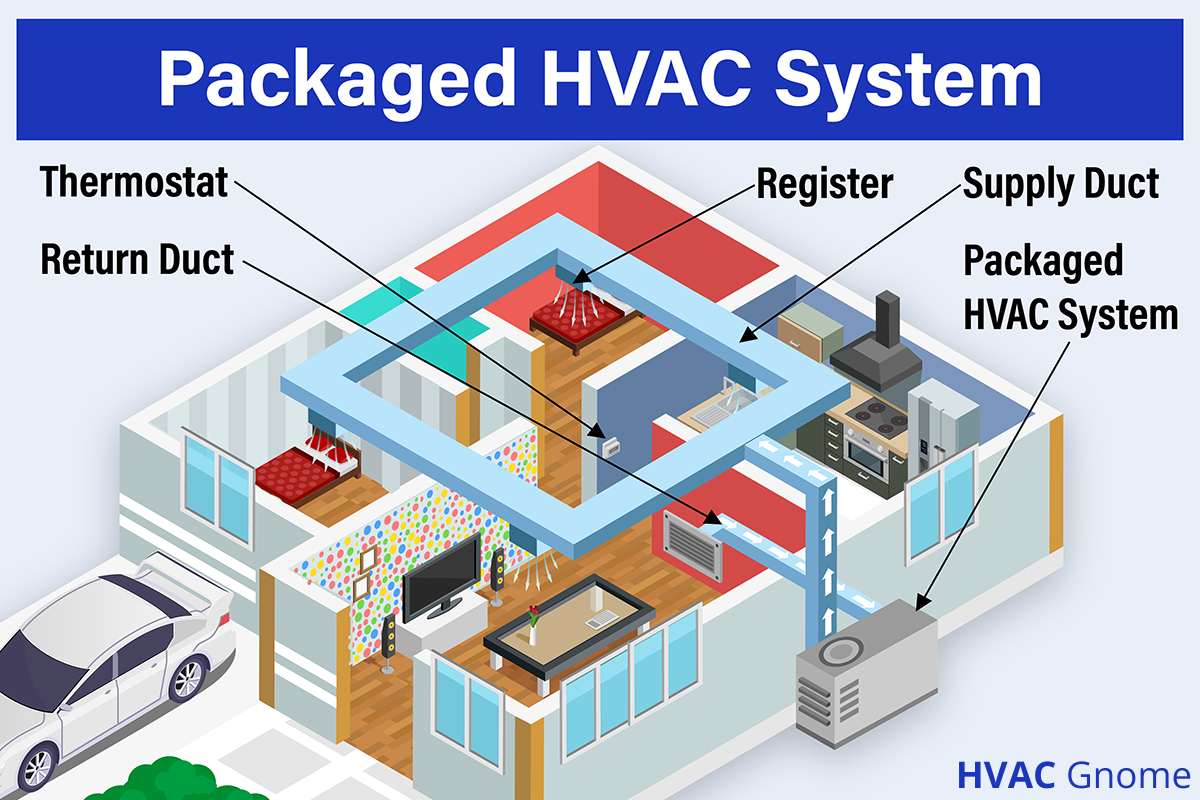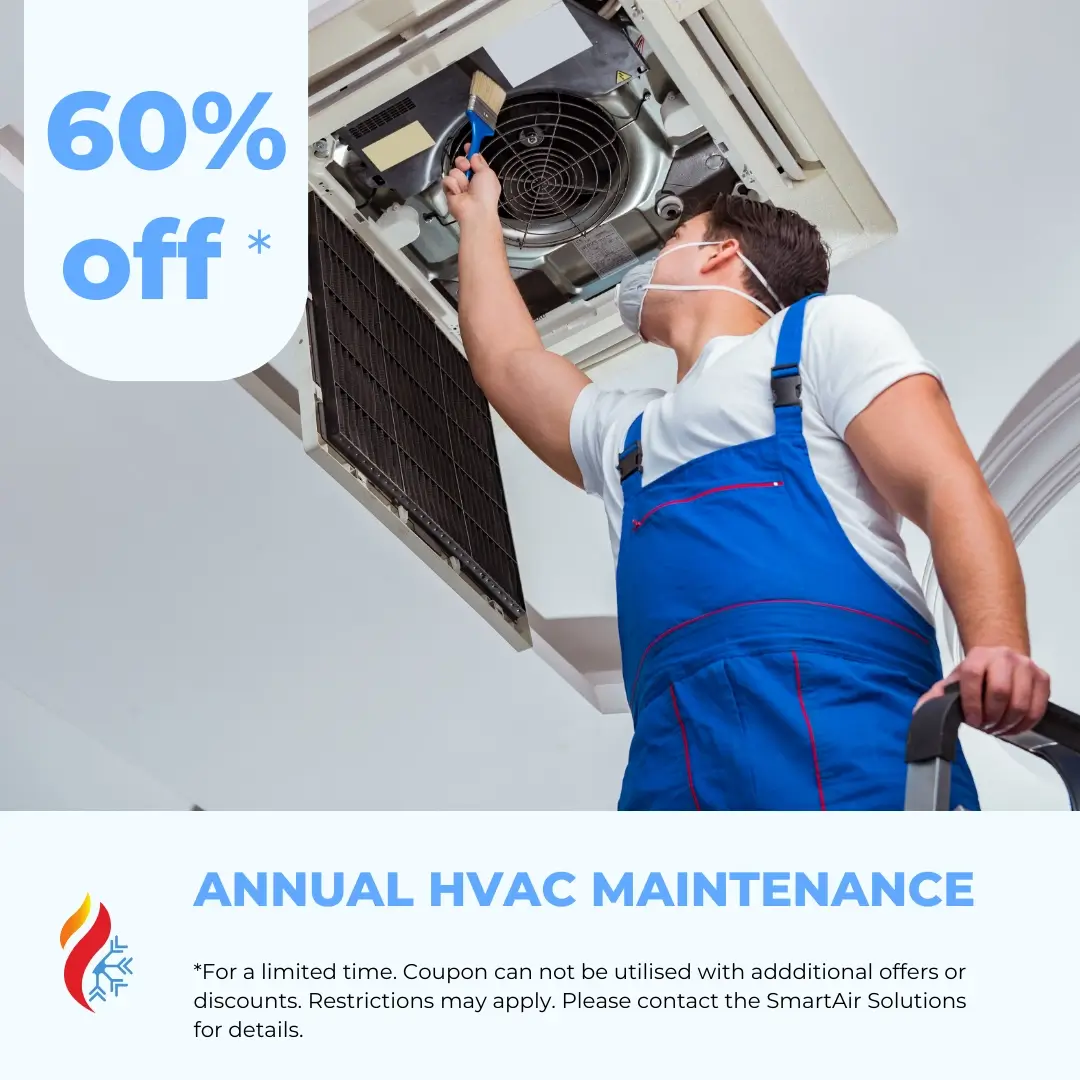A Thorough Consider Heating And Cooling Providers and Their Influence On Energy Efficiency and Cost Savings
With technological advancements like wise thermostats and high-efficiency elements, the capacity for enhancing system efficiency is substantial. As we explore the elaborate relationship in between A/c systems and functional prices, including the change towards environmentally pleasant options, the inquiry occurs: just how can these techniques be effectively applied to maximize both economic and environmental benefits?

Relevance of A/c Equipments
heating and cooling systems are an important component of contemporary buildings, playing a crucial function in keeping healthy and comfy indoor environments. These systems, incorporating heating, air flow, and air conditioning, are crucial for regulating temperature level, humidity, and air quality, thereby guaranteeing the wellness of owners. Efficient a/c systems contribute dramatically to producing an ideal indoor environment, which is important for both industrial and residential spaces.
In commercial structures, heating and cooling systems are indispensable to giving a productive and safe setting. By controlling indoor environment problems, these systems aid avoid the growth of mold and the spread of airborne contaminants, therefore safeguarding the health and wellness of staff members and customers. Additionally, in household settings, cooling and heating systems enhance living problems by supplying consistent thermal convenience and boosting indoor air quality, which is vital for overall health.
Additionally, the style and maintenance of cooling and heating systems have a straight influence on energy intake and functional costs. Properly created and maintained systems can considerably reduce energy usage, leading to lowered energy costs and a smaller carbon footprint. The efficiency of these systems hence plays a critical function in promoting sustainability and power conservation within buildings, highlighting their value in the modern-day building landscape.
Advancements in A/c Technology
Advancement in cooling and heating technology is revolutionizing the way structures take care of interior climates, ushering in a new age of effectiveness and control. Current advancements have concentrated on enhancing energy usage while enhancing user convenience. One significant growth is the assimilation of clever thermostats, which make use of expert system to discover occupancy patterns and readjust temperature levels appropriately, decreasing unnecessary energy usage.
Variable Refrigerant Circulation (VRF) systems stand for one more substantial jump onward. These systems permit exact temperature control in different areas of a structure, boosting convenience and reducing power waste. VRF modern technology is especially useful for large commercial rooms, supplying versatility and scalability.
In addition, the development of Web of Points (IoT) tools has actually transformed a/c systems right into interconnected networks capable of real-time data collection and evaluation. This connectivity makes it possible for anticipating upkeep, making sure systems operate at peak performance and reducing unexpected downtime.
Furthermore, developments in materials and style, such as using high-efficiency coils and compressors, have boosted general system efficiency - Heating Contractor. The adoption of eco pleasant cooling agents additionally underscores the sector's dedication to sustainability
These technical advancements are pivotal in lowering operational prices and ecological influence, setting brand-new standards for developing environment administration.
Heating And Cooling Maintenance and Effectiveness
Making certain optimum efficiency of cooling and heating systems extends past technical advancements; it additionally rests on efficient upkeep methods. Routine upkeep is essential for maintaining performance, reducing energy consumption, and expanding the life period of heating and cooling systems. The key goal is to make sure that all elements work at their peak possibility, therefore decreasing power wastefulness and maintaining consistent indoor convenience degrees.
Regular maintenance tasks, such as cleansing or changing air filters, inspecting cooling agent degrees, and checking ductwork for leaks, are vital for stopping unneeded pressure on the system. Unclean or clogged up filters can obstruct air movement, creating the system to function more challenging and take in more power. Similarly, insufficient refrigerant levels can minimize cooling down effectiveness, leading to greater functional prices.
In addition, periodic evaluations by certified specialists can determine possible issues before they escalate right into expensive repair work or system failures. These assessments typically include checking electric connections, calibrating thermostats, and making certain the general integrity of the HVAC system. By resolving small troubles early, businesses and home owners can prevent unexpected failures and improve energy performance.
Cost-efficient Heating And Cooling Solutions
For those wanting to get one of the most out of their air, home heating, and ventilation conditioning systems without breaking the bank, checking out cost-effective cooling and heating services can make a substantial difference. One instant measure see page is to buy programmable thermostats, which allow individuals to set details temperatures for different times of the day, enhancing power usage and lowering unnecessary usage. By automating temperature changes, homeowners can achieve significant cost savings on power costs.
Routine upkeep is another vital component of economical heating and cooling monitoring. Guaranteeing that filters are cleaned up or changed frequently, ductwork is secured, and devices are serviced by professionals can prevent expensive repairs and improve system long life. Precautionary maintenance not only keeps system effectiveness yet also aids in preventing unanticipated breakdowns that can lead to pricey emergency situation repair work.
In addition, retrofitting existing systems with energy-efficient elements, such as variable rate electric motors or high-efficiency compressors, can be a sensible investment. These upgrades improve operational performance, minimize power usage, and can usually be applied at a portion of the expense of a full system substitute.
Environmental Impact Decrease
Lowering the ecological effect of a/c systems is important in today's search of sustainable living. Heating and cooling systems are significant factors to power usage, representing virtually 40% of energy usage in business buildings. This energy need typically counts on fossil gas, resulting in greenhouse gas discharges and environmental deterioration. Transitioning to much more reliable systems, such as those utilizing renewable resource resources, can substantially minimize these effects.
Technological developments in HVAC layout and procedure, including the integration of smart thermostats and energy-efficient heatpump, are pivotal in reducing carbon impacts. These advancements permit maximized energy usage, minimizing waste and enhancing general system efficiency. Furthermore, embracing regular maintenance practices makes certain cooling and heating systems run at peak effectiveness, further cutting unneeded energy consumption.
In addition, using eco pleasant refrigerants is important, as standard refrigerants, like CFCs and HCFCs, have been phased out because of Going Here their ozone-depleting residential properties. Modern options, such as hydrofluoroolefins (HFOs), deal decreased environmental threats, straightening with global ecological protocols. By welcoming these sustainable practices, heating and cooling solutions can play a transformative function in reducing environmental effects, advertising power effectiveness, and fostering a much more sustainable future.
Verdict

In addition, the layout and upkeep of Cooling and heating systems have a direct influence on power intake and functional expenses. Routine maintenance is important for sustaining effectiveness, lowering power usage, and extending the life period of Cooling and heating systems. HVAC systems are significant factors to energy intake, accounting for almost 40% of energy usage in commercial buildings. Furthermore, adopting regular upkeep methods guarantees HVAC systems run at peak efficiency, additional cutting unneeded energy usage.
The shift to environmentally friendly Heating and cooling systems even more lowers functional expenses and advertises sustainability. (Heating Contractor)